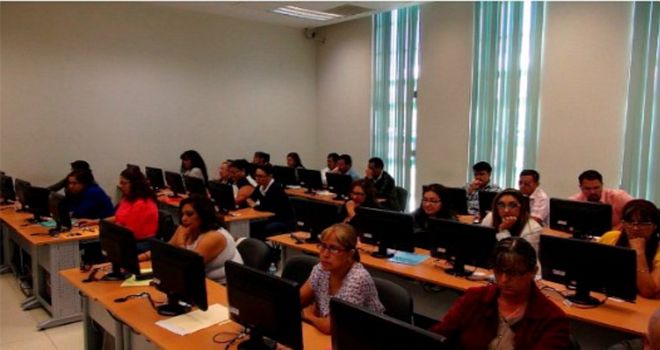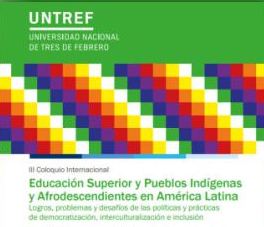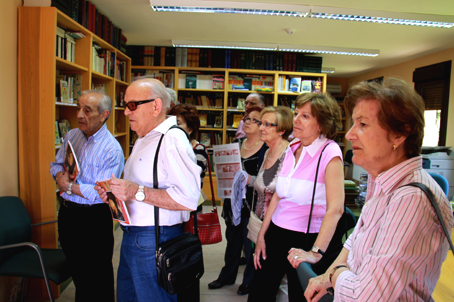Por: Claudio Katz
Trump confirmó en sus primeros días que es un mandatario reaccionario con múltiples planes de atropellos. Mientras crece la resistencia callejera, la viabilidad de su agresión es una incógnita. Pero en cualquier caso, una acertada caracterización de su proyecto vale más que incontables vaticinios.
UNA AGENDA VIRULENTA
Las órdenes ejecutivas que firmó el magnate ilustran sus propósitos trogloditas. Ratificó la construcción del muro a cargo de México, puso en marcha la expulsión de indocumentados, anuló el visado para varios países árabes, anunció la quita de subsidios federales a las ciudades que protejan inmigrantes, inició la liquidación del seguro de salud (Obamacare) y congeló la contratación de empleados estatales.
Su gabinete de generales y multimillonarios incluye expertos en destruir la educación pública (Betsy DeVos), vaciar el sistema sanitario (Tom Price), liquidar el ambientalismo (Scott Prui) y congelar el salario mínimo (Andy Puzder). Su vicepresidente (Mike Spence) lidera las campañas de penalización del aborto y sus principales funcionarios son declarados anti-islamistas (Michael Flynn) o pregoneros del suprematismo blanco (Bannon).
Como el exponente del lobby petrolero (Tillerson) ya rehabilitó la construcción de oleoductos contaminantes, es posible un debut represivo contra los pobladores que resisten en Dakota, esos devastadores emprendimientos.
La predisposición de Trump por el garrote se verificó en su justificación de la tortura. Garantizó protección total a las actividades de la CIA y subió el tono de los insultos contra la prensa por su cobertura de las manifestaciones opositoras. Con una fábula sobre los sufragios fraudulentos, prepara algún mecanismo de disuasión del registro de votantes.
Trump negocia con el establishment republicano el plan económico y la política exterior, respaldando las campañas oscurantistas de los ultra-derechistas de su gabinete. Esa agenda incluye iniciativas de los suprematistas contra los afro-americanos y los derechos conquistados por otras minorías. No sólo los latinos están excluidos de su proyecto de “hacer nuevamente grande” a los Estados Unidos (Davis, 2016).
El magnate sabe que su giro xenofóbico requiere más acciones que palabras. Busca el sostén activo de su electorado para diabolizar a los mexicanos y atacar a los musulmanes. Por eso convoca a los “verdaderos estadounidenses” a sostener su figura contra los “políticos profesionales” del Congreso.
Su combinación de verborragia agresiva y caudillismo nacionalista ha sido identificada por numerosos analistas con el “populismo anti-sistémico” (Fraga, 2016). Utilizan esa denominación para cuestionar su demagogia y su desconocimiento de los principios republicanos. Subrayan que esos defectos son internacionalmente compartidos por líderes de la derecha y la izquierda
Pero la inconsistencia de esta comparación salta a la vista en el caso de Trump. Se pueden trazar paralelos con Le Pen, pero cualquier parentesco con Maduro o Evo Morales es un disparate. El mote de populista oscurece que el potentado es un exponente de la clase capitalista, que busca reconstituir el sistema político estadounidense mediante una gestión autoritaria.
Como esa meta exige soportes para-institucionales, la coalición gobernante incluye el componente fascista de las milicias y de los grupos que promueven el uso de las armas en las universidades.
Algunos autores (Cabrera, 2017) resaltan acertadamente estas amenazas, frente a las vacilaciones de los progresistas que contemporizan con Trump. Esos enfoques describen el voto obrero logrado por el multimillonario como una simple manifestación de descontento, diluyendo su carácter reaccionario. También despliegan acertados cuestionamientos a Obama e Hilary, desconsiderando el peligro que representa el nuevo presidente (Fraser, 2017). Con esa actitud resulta difícil valorar la extraordinaria explosión de protestas que desencadenó la llegada de Trump.
UNA RESISTENCIA INÉDITA
Ningún otro presidente inició su mandato con tanto rechazo inicial. Cuatro millones de manifestantes transformaron la fisonomía de las principales ciudades de Estados Unidos. Pero más llamativa ha sido la radicalidad de los discursos y las consignas.
Bajo un alud de carteles proclamando que Trump “no es mi presidente”, numerosos oradores resaltaron la ilegitimidad del mandatario. Las encuestas ratificaron que la mitad de la población convalida esa percepción. No sólo Michael Moore y los seguidores de Sanders cuestionan la validez de la actual gestión presidencial. Algunas personalidades del establishment coinciden en ese desconocimiento (Krugman, 2017). Estos planteos socavan los cimientos del sistema institucional estadounidense.
La ceremonia de asunción fue boicoteada por cuarenta senadores liderados por un emblemático luchador afro-americano (Lewis). Este convulsivo escenario suscita impensables comparaciones con los países latinoamericanos.
Junto a las protestas emerge una nueva cultura de resistencia presente en ingeniosos carteles, que recuerdan a los grafiti del 68. Las redes sociales sustituyen las viejas pinturas en los paredones, facilitando la difusión instantánea de los mensajes. La repercusión internacional de esos slogans crece junto a un repudio de Trump, que es compartido por toda la comunidad artística de Hollywood.
La próxima batalla se librará en las “ciudades santuario” que extendieron documentos de protección a los perseguidos. Las autoridades de 300 centros urbanos han declarado que resistirán las exigencias federales de deportación, subrayando “que la inmigración hace grande a América”.
Varios comentaristas trazan comparaciones con el clima que anticipó en los años 60, las movilizaciones contra la guerra de Vietnam. Ese recuerdo ha sustituido las analogías de Trump con Reagan por semejanzas más pertinentes con Nixon. Si la resistencia se consolida, los planes del nuevo mandatario afrontarán los mismos límites que paralizaron a ese antecesor.
Trump reabre viejas heridas de la sociedad estadounidense. Confronta con los descendientes de pueblos originarios sioux, que rechazan los oleoductos contaminantes. En el piquete de Standing Rock fue conmemorado el saqueo sufrido por esa comunidad, con apoyos que incluyeron a varios veteranos de guerra. Todos pidieron perdón por el exterminio de los indios y su confinamiento en reservas ( Honty, 2016) .
Este resurgimiento de antiguas grietas es más agudo en la cuestión racial. Trump acoge a los encubiertos simpatizantes del Ku Klux Klan, que heredan el odio de los derrotados plantadores del Sur hacia los afroamericanos. Durante la última centuria, ese sector preservó un enorme poder en los ministerios, tribunales y legislaturas (Pozzi, 2016) y sostuvo el sistema electoral que premia a los estados rurales, conservadores y con menor población (Majfud, 2016).
Trump fue ungido por ese antidemocrático sistema que vulneró la mayoría de sufragios obtenidos por su contrincante. Ahora reabre desde la presidencia las fracturas más dolorosas de la historia estadounidense. Su presencia en la Casa Blanca ha desatado un terremoto político. Luego del impresionante apoyo logrado por Sanders, esa convulsión ha creado un gran auditorio para las propuestas de la izquierda.
LA PULSEADA ESTRATÉGICA CON CHINA
Trump no es un extraviado que improvisa la gestión de la primera potencia. Parte de diagnósticos elaborados por centros de estudios del establishment, que han constatado cómo la globalización neoliberal impulsada por Estados Unidos beneficia a China (Silva Flores, Lara Cortes, 2017).
Resolver esa contradicción es el principal objetivo del acaudalado. Busca ante todo reducir el descomunal déficit comercial con el gigante asiático. Promueve ese balanceo mediante una revisión de los tratados de libre comercio, que no aportan suficientes ganancias a la economía yanqui.
Por eso inauguró su gestión frenando la negociación del convenio transpacífico, que a su juicio otorgaba demasiadas concesiones a los restantes miembros de la asociación.
Esta decisión no implica el repliegue proteccionista de una economía tan enlazada con circuitos internacionales de abastecimiento. Trump intenta reordenar (y no suprimir) los tratados que rigen el comercio mundial, a través del esquema concertado por la OMC a mitad de los 90.
El magnate busca recuperar la hegemonía de Estados Unidos en el intercambio global (Lucita, 2016). No pretende revertir la estructura internacional de transacciones, que actualmente manejan las empresas multinacionales.
Ese tipo de revisión ya fue perpetrada por Estados Unidos, cuando sustituyó el fracaso del ALCA por convenios bilaterales con distintos países latinoamericanos. Ahora prepara una renegociación que preservará todos los ítems que apuntalan a la potencia del Norte.
Trump retomará del caído TTP (y del pendiente TISA) las conveniencias logradas por las firmas estadounidenses en los derechos de propiedad de varias áreas (remedios, cinematografía, informática, correo, aeronáutica, finanzas). Buscará convalidar la supremacía de su país en los servicios y el acceso privilegiado a las compras públicas de otras naciones ( Ghiotto, Heidel 2016).
Pero la negociación con China es más compleja. Trump no sólo exige la apertura del mercado asiático a los bancos y proveedores estadounidenses. También demanda límites a la penetración directa de productos chinos o a su ingreso lateral, a través de plataformas de producción en terceros países. Los automóviles están en mira de ese operativo.
La presión contra el competidor oriental se extiende a la esfera monetaria. Trump no obstruirá la compra de bonos del tesoro -que preserva la preeminencia internacional del dólar- pero tratará de evitar la apreciación de la moneda norteamericana (y las devaluaciones del yuan), que afectan las exportaciones de la primera potencia.
Con ese duro esquema de hostigamiento comercial-monetario, el magnate intentará doblegar a China, sin afectar el predominio de los sectores altamente internacionalizados de la economía estadounidense.
El conflicto estratégico que se avecina con el gigante oriental tiene semejanzas con la pugna mantenida con la Unión Soviética. Los presidentes republicanos se han especializado en confrontaciones de ese tipo. Reagan potenció la guerra fría, Bush lideró invasiones en Medio Oriente y Trump encabeza la pulseada con China.
Pero en el establishment hay muchas dudas sobre ese desafío (Nye, 2017). Los halcones suponen que China es económicamente vulnerable e incapaz de sustituir a Estados Unidos, en el comando del capitalismo globalizado.
Pero el sector que predominaba con Obama teme las consecuencias de ese choque. Promueve la neutralización de China, mediante su incorporación plena (y consiguiente subordinación) a los circuitos globales de las finanzas (poder de voto en el FMI) y la moneda (constitución de un signo mundial con participación del yuan) ( Bond, 2015)..
Trump ya empezó su ofensiva con una llamada telefónica a Taiwán, pero prepara con cuidado la escalada. El gobierno chino respondió con dureza, ofreciendo en Davos nuevos tratados de libre-comercio a todos los socios en disputa. Mientras evita discutir la apertura interna, contraataca con propuestas de globalización potenciada.
China ya puso en marcha su propio convenio en el Pacífico (AGER), afianza el estratégico acuerdo de Shangai con Rusia y logró inéditas aproximaciones con Filipinas, Malasia y varios países del Sudeste Asiático. Frente a semejante resistencia, Trump ensaya la futura confrontación, con provocaciones a un vecino indefenso del hemisferio americano.
EL SENTIDO DE LA AGRESIÓN A MÉXICO
Los furibundos ataques a México son una advertencia a los competidores de mayor porte. Trump ejercita su ofensiva global con la insultante exigencia de construir un muro pagado por las víctimas.
También aquí está en juego la reducción del déficit comercial con el vecino y una renegociación más favorable del convenio comercial (NAFTA). Pero como esos desbalances son inferiores a los vigentes con otros países, es evidente que el gesto de patota hacia México tantea pulseadas de mayor alcance.
Trump supone que Peña Nieto aceptará todas las humillaciones. No olvida que el actual canciller Videgaray lo invitó como candidato a despreciar públicamente a México. Imagina que el establishment de ese país carece de un plan alternativo a la subordinación al Norte y está seguro del acompañamiento de Canadá.
Por eso chantajea con el arancelamiento de importaciones provenientes de una economía, que destina a Estados Unidos el 90% de sus ventas. Complementa esa presión con amenazas de impuestos a las remesas.
El muro es un mensaje de persecución total. Más que la construcción efectiva del paredón -que ya fue concretada en un tercio por las administraciones anteriores- le interesa emitir una señal de agresión sin límite. Sugiere una pesadilla semejante a la padecida por los palestinos en Cisjordania.
La expulsión de mexicanos sintetiza su nuevo plan de gestión reaccionaria de la fuerza de trabajo. Trump pretende reforzar la vieja segmentación de los asalariados que ha caracterizado al capitalismo estadounidense. Esa división facilitó la dominación burguesa. Al principio eran contrapuestos los inmigrantes europeos de distintas nacionalidades y posteriormente se propició la confrontación de los trabajadores blancos con los negros y latinos (Gordon, 1985)..
En las últimas décadas esta fractura fue utilizada por consolidar la reducción de los ingresos populares. El salario mínimo es actualmente inferior en un 25 por ciento al vigente en 1968, a pesar de la duplicación que registró la productividad.
Trump resucita el nacionalismo para recrear la vieja segmentación de los trabajadores en el nuevo escenario neoliberal. Combina chauvinismo con privatizaciones y flexibilización laboral. Utiliza la xenofobia y limita la movilidad de los asalariados para consolidar el poder del capital.
Esa restricción es su principal foco de revisión de los tratados de libre comercio. En ningún momento objeta la continuidad de la acumulación a escala mundial. Postula ampliar el esquema predominante en la relación entre China y Estados Unidos, que excluye la circulación entre los trabajadores de ambos países (Panitch, 2016)..
El Brexit anticipó esta nueva tendencia. Supone renegociar las normas del comercio entre Inglaterra y Europa, pero sobre todo apunta a restaurar las restricciones al ingreso de inmigrantes. También conduce al desconocimiento británico de las leyes laborales y sociales del Viejo Continente. Al que igual que en Estados Unidos, los capitalistas buscan redoblar sus agresiones usufructuando de las divisiones en la clase obrera.
Con la obstrucción de la movilidad de la fuerza de trabajo, Trump y sus colegas ingleses promueven otro modelo de globalización asimétrica. Intentan reemplazar el alicaído cosmopolitismo de la Tercera Vía por un nuevo coctel de neoliberalismo con xenofobia. Este giro se implementa a través de estados nacionales, que persisten como el cimiento insoslayable de la mundialización neoliberal.
Es importante registrar el carácter limitado del cambio propiciado por Trump, frente a la generalizada identificación de su política con el viejo proteccionismo (Algañaraz, 2017) o con el fin de la globalización (Pérez Llana, 2017). Esas caracterizaciones han sido acertadamente objetadas, por los autores que describen las diferencias del curso actual con los modelos clásicos de arancelamiento (Puello Socarrás, 2017). En el giro propuesto hay muchas continuidades con el esquema neoliberal de las últimas décadas (Robinson, 2017)..
Trump forma parte de ese período por su evidente promoción de la ofensiva del capital sobre el trabajo. Plantea revisar las normas de comercio dentro del marco de la mundialización. No auspicia ninguna eliminación de las cadenas globales de valor, que rigen la fabricación internacionalizada de incontables mercancías.
Ni siquiera postula alterar la globalización financiera. Se ha rodeado de la crema de Wall Street y trabaja con los republicanos más hostiles a cualquier regulación del movimiento internacional de los capitales.
LOS RIESGOS DE LA ECONOMÌA
Como Trump debutó abriendo muchos frentes de conflicto, necesitará logros económicos próximos para oxigenar su gestión. En lo inmediato promueve el programa de obras públicas, que muchos sectores demandaron infructuosamente a Obama.
Un magnate que amasó fortunas con desarrollos inmobiliarios sintoniza con todos los negocios de infraestructura. Esa inversión es impostergable en una economía afectada por el vetusto estado de los servicios públicos. Al cabo de tres décadas de contracción en ese segmento de los gastos federales, la antigüedad de esos activos supera los 22 años.
La propuesta de Trump no es tan ambiciosa e involucra erogaciones muy inferiores a las efectivizadas por China en el último decenio. Pero incluso a esa escala hay pocos antecedentes de efectividad en ese tipo de iniciativas. Ninguna economía occidental ha logrado recientemente reactivaciones sustanciales por esa vía. El último fracaso se registró en Japón. El Abe-economics -que anticipó algunos rasgos del Trump-economics- no logró reanimar el aparato productivo (Robert, 2016)..
El proyecto del millonario supone, además, un gran endeudamiento público y el significativo incremento de las tasas de interés. Ese encarecimiento revertiría la baratura crediticia que alivió a la economía estadounidense en los últimos años.
Por el momento los mercados financieros están satisfechos con su nuevo representante en la Casa Blanca. Aprueban la inminente reducción de impuestos a las actividades empresarias y avalan el protagonismo de los banqueros en el gabinete. Pero habrá que ver cómo reaccionan los fondos de inversión con fuertes tenencias de títulos estadounidenses, ante el incremento del déficit fiscal.
Un riesgo semejante introduce la preeminencia del lobby petrolero. Los popes de este sector (Tillerson, Rick Perry, Scott Pruit) no sólo recuperan el dominio que tuvieron durante la gestión de los Bush. Su total negación del cambio climático augura el congelamiento de las tratativas para frenar el calentamiento global y una renovada emisión de gases tóxicos. Al concluir el quinquenio más cálido de la historia reciente se avecina el desmantelamiento de la Agencia de Protección Ambiental (Chomsky, 2016).
Resulta difícil imaginar cómo hará Trump para lograr su prometida recomposición del empleo industrial. Ninguna de sus propuestas revierte la especialización de la economía estadounidense, en servicios o fabricaciones de bienes finales. Esas medidas tampoco contrarrestan los procesos de automatización que desplazan mano de obra. En ningún caso permitirían abaratar el costo de la fuerza de trabajo a una escala comparativa con Asia.
El modelo en marcha supone una mezcla de monetarismo (alza de las tasas de interés) y ofertismo (reducción de impuestos), con ingredientes keynesianos (reactivación con gasto publico). Este último componente suscita elogios de algunos pensadores heterodoxos, que divorcian la política económica de la orientación reaccionaria de Trump (Varoufakis, 2016). La recuperación capitalista que promueve ese proyecto no atenúa su regresividad.
REPLANTEOS INTERNACIONALES
El belicismo de Trump salta a la vista en los asesores del presidente. Incorporó más militares en cargos de seguridad, que cualquier otro gobierno de los últimos 60 años. En su gabinete predominan los mismos partidarios de la unipolaridad armada, que prevalecieron en la gestión de los Bush. Ya dispuso incrementos de sueldos en el ejército y un mayor presupuesto para el Pentágono.
El magnate desmintió todas las expectativas de repliegue interno de la primera potencia. El sheriff del planeta calibra sus cañones y refuta todas esperanzas de aislacionsimo. La valorización de acciones del complejo industrial-militar anticipa su agenda intervencionista..
Esa escalada tiene precedentes en Obama, que recompuso la presencia internacional del Pentágono con incrementos de bases internacionales (de 60 en 2009 a 138 en 2016) y autorizó el lanzamiento de 26.171 bombas (Gandásegui, 2017)..
Estados Unidos es el protector militar del capitalismo global y no tiene en carpeta ningún abandono de ese rol. Las incógnitas giran en torno a los objetivos geopolíticos específicos de esa acción.
Trump intenta una aproximación con Rusia para debilitar a China. Invierte el operativo de Nixon, que en los años 70 buscó socavar a la URSS acordando con el gigante asiático.
Los contratos petroleros suscriptos con Putin por el secretario Tillerson (en representación de Exxon Mobil) prepararon el nuevo curso. Pero en el Departamento de Estado existen serias resistencias a ese rumbo. Por eso se han filtrado tantos secretos de la relación de Trump con Moscú.
La elite rusa aprueba el afianzamiento de las relaciones con Occidente. Deposita sus fortunas en Londres, educa a sus hijos en Harvard, vacaciona en Miami y consuma negocios turbios en Ginebra (Kagarlisky, 2015). Pero como Estados Unidos nunca ofrece algo a cambio de la simple subordinación, todos los acercamientos desembocan en nuevos distanciamientos.
La experiencia Yeltsin quedó atrás y Putin no acepta el sometimiento propiciado por los antecesores de Trump. Rusia estableció numerosos convenios con China y acaba de exhibir ambiciones geoestratégicas en Siria (Katz, 2017).
El ocupante de la Casa Blanca afronta, además, serios conflictos con gobiernos europeos por su aproximación a Putin. Varios líderes del Viejo Continente se niegan a eliminar las sanciones introducidas por Hollande y Obama durante la crisis de Ucrania. Esos desacuerdos agravan el malestar generado por las exigencias estadounidenses de mayor financiamiento europeo de la OTAN. Este disenso se extiende incluso al incondicional socio británico.
El impacto de Trump es especialmente significativo en Inglaterra. Ha reforzado a los partidarios de concretar aceleradamente el Brexit, para actualizar la alianza transoceánica y diversificar acuerdos de libre-comercio con distintas regiones. Pero los oponentes a esa separación demoran las definiciones y auspician un status intermedio con Europa (semejante a Noruega). Otros proponen una larga transición de siete años y todos dependen de una resolución final del Parlamento.
Para contrarrestar la presión de los bancos -que perderían con el Brexit la centralidad de la City en la absorción del capital europeo-el gobierno ofrece ampliar las atribuciones de Londres, como paraíso financiero desregulado. En la dura negociación comercial con Alemania, amenazan con ofrecer mayores subsidios a las empresas para atraer inversiones del Viejo Continente.
Pero todas estas jugadas empalidecen frente a la amenaza de Escocia de convocar a un nuevo plebiscito, para dirimir la separación del Reino Unido si se concreta el abandono de Europa.
El ascenso de Trump también influye en los resultados de los próximos comicios presidenciales en Francia. La extrema derecha espera repetir lo ocurrido en el mundo anglosajón. Pero a diferencia de Estados Unidos no tienen una estrategia a futuro. Proclaman su rechazo a cualquier modalidad de la Unión Europea y al mismo tiempo refuerzan lazos parlamentarios, con los partidos derechistas del Viejo Continente.
En semejante desconcierto no es muy sensato coquetear con la oleada actual elogiando el Brexit o aprobando el proteccionismo (Sapir, 2016). Al igual que en Estados Unidos, el acompañamiento del grueso de la clase obrera a las propuestas reaccionarias, no atenúa la regresividad de esos planteos.
La izquierda debe plantar su propia bandera denunciando por igual a los xenófobos y a los liberales. Es cierto que Trump y Le Pen ascienden por la decepción con Obama y Hollande, pero ese avance expresa una canalización reaccionaria de la frustración precedente.
La misma firmeza debe prevalecer a la hora de juzgar las respuestas conservadoras a Trump. La actitud del gobierno chino es particularmente nefasta, puesto que contrapone las ventajas del libre-comercio a la agresividad estadounidense.
Ese mensaje refuta a quiénes ponderan el modelo internacional de China, como una alternativa progresista al neoliberalismo occidental (Escobar, 2016). En un momento de mutaciones tan drásticas, la izquierda necesita enarbolar sus propias banderas anticapitalistas.
EL TEMBLOR EN AMÉRICA LATINA
En ningún país del mundo la presidencia de Trump desata convulsiones equivalentes a México. El gobierno está totalmente mareado y Peña Nieto sólo pospuso la peregrinación a Washington, cuando su agresor le explicitó la inutilidad del encuentro. Las críticas a esa genuflexión unificaron a todo el arco opositor.
Los insultos del gringo millonario reavivan la memoria de los avasallamientos sufridos por el país, en un contexto de gran reactivación de la lucha social. Las marchas frente al gasolinazo reforzaron la continuada batalla del magisterio y superaron la reacción ante los crímenes de Ayotzinapa (Aguilar Mora, 2017).
La desorientación que exhibe la clase dominante mexicana se extiende al continente. Todos los mandatarios neoliberales esperaban profundizar con Hilary la restauración conservadora, concertando la Alianza librecambista del Pacífico. Frente al nuevo escenario no logran definir alguna política alternativa. Sólo profundizan la parálisis interna del Mercosur, sin concebir concertaciones defensivas.
Hasta ahora predomina la tendencia a buscar acuerdos de libre-comercio sustitutos, no sólo con la Unión Europea. Argentina y Brasil aceitan eventuales negociaciones con China, registrando la activa agenda de viajes del presidente asiático. Ni siquiera evalúan las consecuencias económicas primarizadoras de esas tratativas.
Si la región queda en el medio de una gran batalla comercial entre Estados Unidos y China, los efectos podrían ser demoledores. Aprovechando la ausencia de políticas soberanas en la región, los dos gigantes disputarían con más ferocidad la colocación de mercancías excedentes y el saqueo de los recursos naturales.
Argentina está particularmente embarcada en esa auto-destrucción. Macri emula a su par estadounidense en la intimidación represiva y la xenofobia anti-inmigrante.
Pero Trump despierta simpatías también en el Cono Sur, entre los políticos que elogian su promoción del mercado interno (Terragno, 2017). Algunos declaran con llamativa admiración que “Trump es peronista” (Moreno, 2017). Explicitan de esa forma el componente reaccionario del justicialismo clásico, que emergió en la época de Isabel Perón.
El lugar de la izquierda está en el campo opuesto de solidaridad con los manifestantes callejeros de Estados Unidos. Esa convergencia se nutre de un rechazo compartido al derechista de la Casa Blanca. El antiimperialismo de América Latina empalma con las demandas democráticas de los indignados del Norte.
Trump inaugura un giro de alcance global. El epicentro de la crisis se ubica primera vez en la principal potencia del planeta. De la misma forma que nadie imaginó la implosión de la Unión Soviética o la conversión de China en potencia económica, tampoco hubo previsiones de la monumental mutación en curso.
Las grandes transformaciones irrumpen sin aviso previo, pero sus efectos están a la vista. Trump es la barbarie capitalista y sus provocaciones exigen forjar una respuesta socialista.
RESUMEN
Trump impulsa un proyecto reaccionario que no se clarifica indagando el populismo. Promueve un giro autoritario con sostén para-institucional para favorecer a los capitalistas. La inédita resistencia en las calles reflota tradiciones rebeldes y acota su margen de acción.
En la estratégica pulseada con China pretende renegociar tratados sin retornar al viejo proteccionismo. La agresión a México es una advertencia a los grandes competidores y el maltrato a los inmigrantes anticipa una fase de neoliberalismo xenófobo.
El componente keynesiano de Trump no atenúa su carácter regresivo. El ascenso del magnate potencia el belicismo y enlaza la crisis europea con el devenir estadounidense. El impacto sobre América Latina es mayúsculo.
REFERENCIAS
Aguilar Mora, Manuel (2017)http://www.sinpermiso.info/textos
Algañaraz, Julio (2017). www.clarin.com/mundo _0_H14vGc0Hg.html
Bond, Patrick (2015) http://vientosur.info/spip.php?article10740.
Cabrera, Luis Martín (2017). www.rebelion.org/noticia.php?id=221858
Chomsky, Noam (2016) http://revistanorte.com.ar
Davis, Mike (2016). www.sinpermiso.info/textos/trump
Escobar, Pepe (2016) http://www.rebelion.org/noticia.php?id=220419
Fraga, Rosendo (2016). www.lanacion.com.ar/1961492
Fraser, Nancy (2017). www.rebelion.org/noticia.php?id=221955
Gandásegui h, Marco (2017) http://laestrella.com.pa/opinion23981819
Ghiotto, Luciana; Heidel Evelin (2016) www.alainet.org/es/articulo/182379
Gordon, D. M, Edwards, R; Reich, J.M. (1985). Trabajo segmentado, trabajadores divididos. Ministerio de Trabajo y Seguridad Social, Madrid.
Honty, Gerardo (2016), http://www.alainet.org/es/articulo/182236
Kagarlisky, Boris (2015) www.potemkinreview.com/kagarlitsky-interview.html
Katz Claudio (2017) http://www.rebelion.org/noticia.php?id=221819
Krugman, Paul (2017) www.lanacion.com.ar/1976434
Lucita, Eduardo (2016) http://www.laarena.com.ar/opinion 097214-11
Majfud, Jorge (2016) http://www.alainet.org/es/articulo/182149
Moreno, Guillermo (2017) http://www.clarin.com0_ByJM3b-vg.html
Nye, Joseph (2017). www.clarin.com/mundo/nuevo0_S1lL0Xgvg.html
Panitch, Leo (2016). https://www.jacobinmag.com/2016/12
Pérez Llana, Carlos (2017). www.clarin.com/opinion0_rk5pMZewe.html
Pozzi, Pablo (2016). http://www.laizquierdadiario.com
Puello Socarrás, José Francisco (2017). https://zur2.wordpress.com
Robert, Michael (2016). http://www.sinpermiso.info/textos
Robinson, William (2017) http://www.alainet.org/es/articulo/182745
Sapir, Jacques (2016)http://www.elviejotopo.com
Silva Flores, Consuelo, Lara Cortes, Claudio (2017)ww.globalresearch./5569580
Terragno, Rodolfo (2017) http://www.clarin.comrkAI9Ha8l.html
Varoufakis, Yanis (2016) http://www.sinpermiso.info/textos
Claudio Katz es economista, investigador del CONICET, profesor de la UBA, miembro del EDI. Su página web es: www.lahaine.org/katz
Fuente: http://www.rebelion.org/noticia.php?id=222455














 Users Today : 9
Users Today : 9 Total Users : 35461948
Total Users : 35461948 Views Today : 12
Views Today : 12 Total views : 3422753
Total views : 3422753